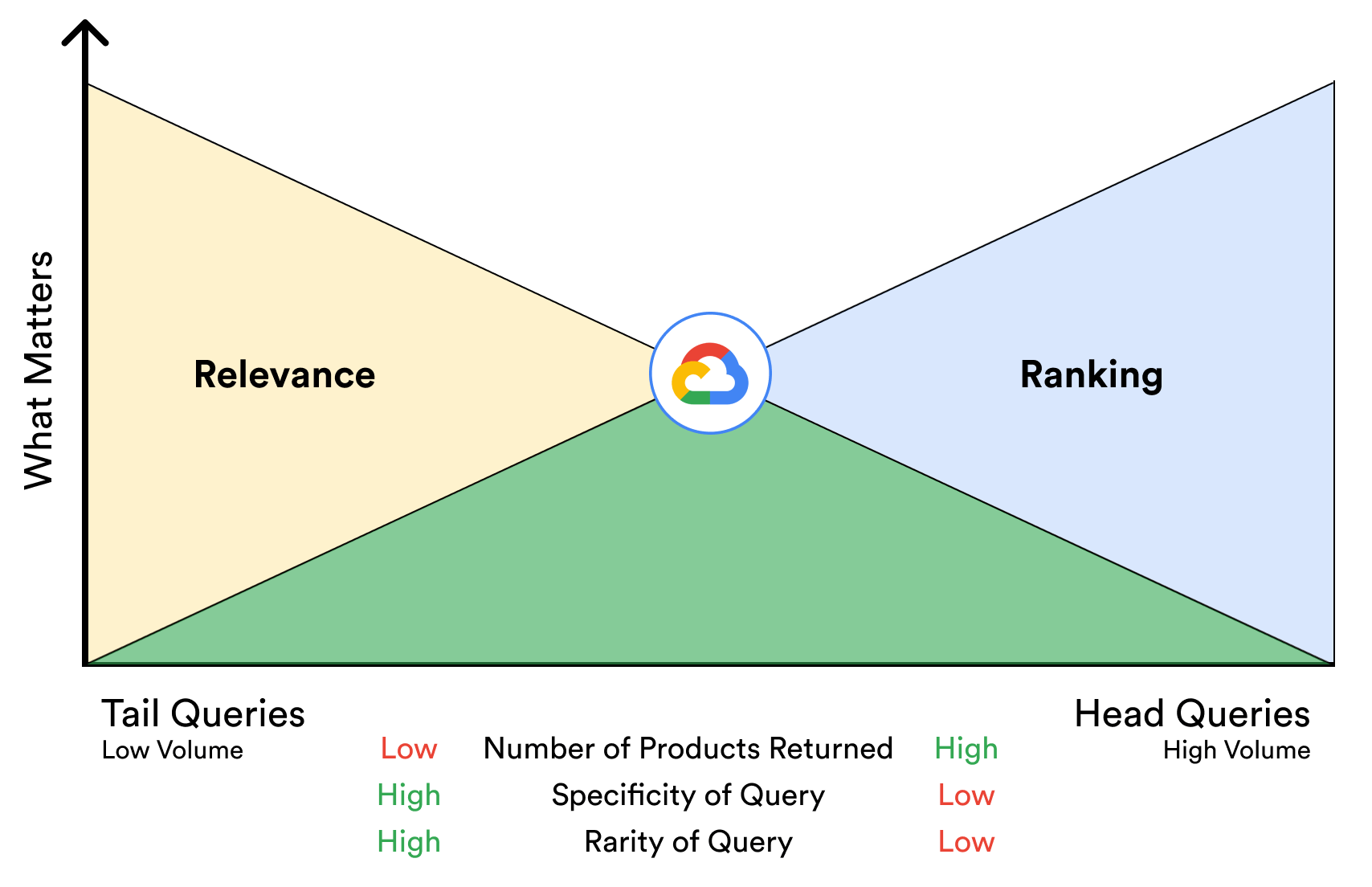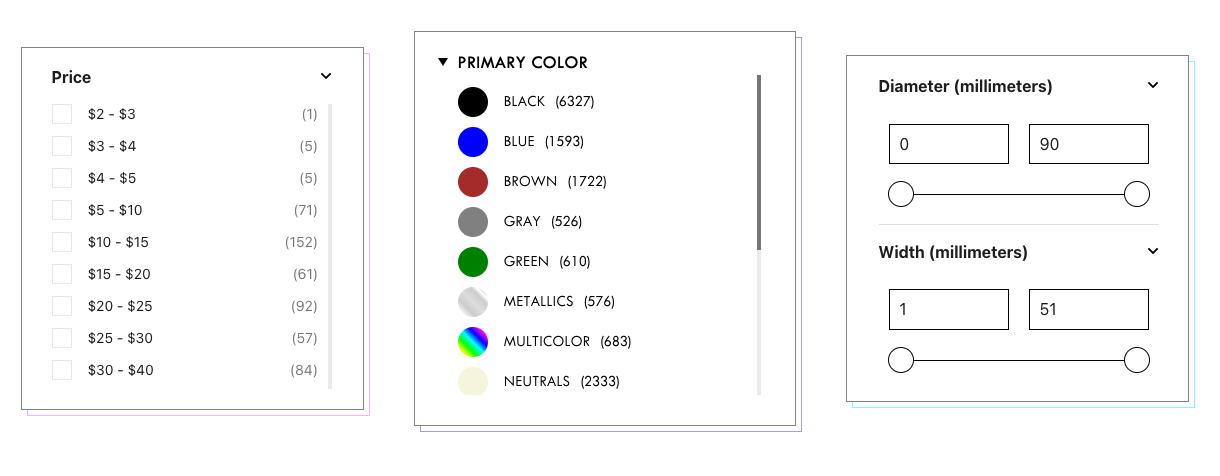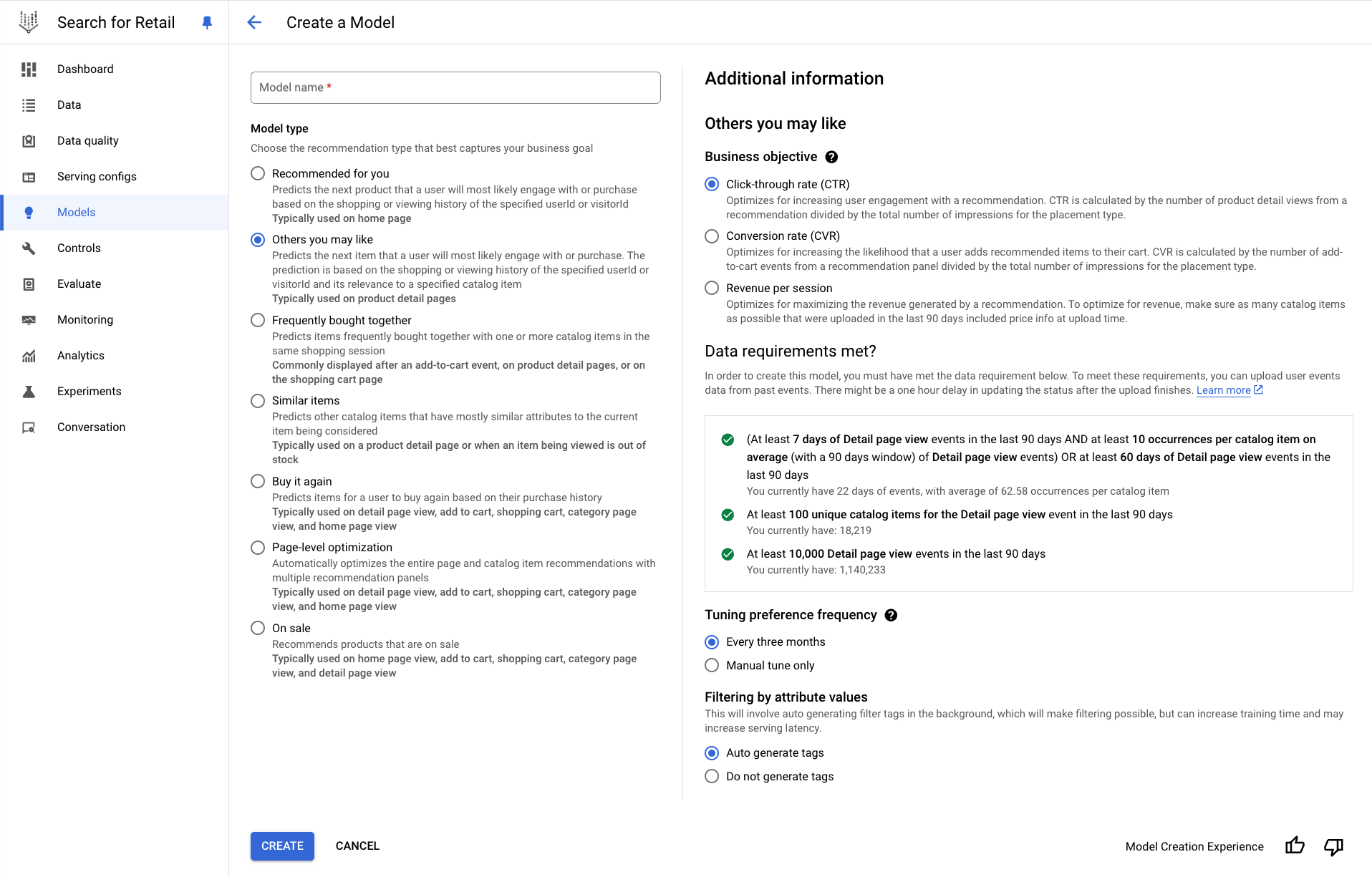The Core Differentiator: Google.com Search Algorithms
At a high level, Vertex AI Search for Commerce is the only solution that equips retailers with the ability to offer Google-quality search functionality on their own ecommerce storefronts. According to research conducted by The Harris Poll, bad search results lead to over $2 trillion of lost revenue every single year—Google set out to address this problem by launching Vertex AI Search for Commerce in 2021, and the results speak for themselves in our LOZURI case study.
The word “Google” became synonymous with “search” over a decade ago, and no other tech company has the vast knowledge and historical search data as Google does. While Vertex AI Search for Commerce is a newer product, it’s built on the decades of research and foundations that help Google.com power billions of queries every day.
To better understand the difference between Vertex AI Search for Commerce and other competitors on the Shopify App Store and beyond, let’s begin by reviewing what makes ecommerce search so difficult:
It's difficult to understand user intent - Search platforms need to understand what a query means before trying to show relevant products. This is especially important for tail queries, such as "high waisted ripped boyfriend jeans"—a challenge that Google's Unified Commerce Platform is designed to solve.
It’s difficult to rank relevant products - Search platforms need to decide what order to put relevant products in, especially if some products have higher expected revenue than others. This is more important for head queries, such as “women’s pants.”
It’s difficult to personalize and surface the right products to the right shoppers - Each user is unique and has a different pattern of navigating your website before finding the right products. Designing a journey for every user is impossible, so AI tools must make us more efficient and fill in the customer journey gaps created by individuals.
Vertex AI Search for Commerce leverages Google's advanced search technologies to enhance product discoverability for individual customers. The platform's relevance models dynamically adapt to customer behaviors and search queries in real time, ensuring that your product discovery solution evolves alongside your catalog as it changes—a trend reshaping the state of Shopify search in 2026.

As your query parameters and catalog attributes shift over time, the system's recall and ranking weights continuously adjust, ensuring that search results remain personalized and optimized for customer needs and buyability.
Reducing “No Results Found” Searches
Approximately 15% of users on an ecommerce site will type a search query that has never been typed before. Every Shopify product discovery solution now claims to use AI and semantic search technology to go beyond keyword matching. However, Google goes a step further by leveraging Query Expansion to automatically generate alternative search terms based on user context, product attributes, and historical search patterns across your site.
Google’s entire business model is based on ensuring search results don't come up empty, and applying the same techniques to your website dynamically improves search performance, minimizing instances where users encounter empty result pages across your store.
Optimizing for Personalized Revenue
Unlike other Shopify apps focused solely on ranking and relevancy, Vertex AI Search for Commerce optimizes for revenue growth through intelligent product ranking. After collecting sufficient User Events, the platform goes beyond relevance sorting by predicting each product's purchase likelihood based on comprehensive site-wide activity.
As data accumulates, search results and collection pages become dynamically personalized. Vertex AI ranks products not just by ranking and relevance, but by their specific relevance to individual users, considering unique browsing preferences and the "quality of match" for each search or browse session.

Reducing Manual Merchandising Rules
Installing any new Shopify product discovery app often comes with fine tuning it to ensure the most important products are returned in search results and in recommendations. This includes adding synonyms, redirects, or creating product relationships to help nudge the algorithms into understanding your catalog.
Vertex AI Search for Commerce doesn’t require any tuning up front. Instead, it automatically adapts to your customer’s real behavior and learns to fill in the most common and unusual gaps without requiring human intervention. In fact, we advise our customers to AB test any of their own rules that may overwrite the default AI behavior because they may actually be hurting conversions. Vertex AI Search for Commerce is usually better at ranking and relevance than any human merchandiser we’ve met, so adjustments should be limited to brand-specific or contractual requirements.
In terms of ROI, saving time and money on manual merchandising is one of the largest benefits of adopting any AI-powered search tool, but especially Vertex AI Search for Commerce.
Dynamic Facets and Filters
Facets and filters on search and collection pages are used to help users refine results to hone in on the most relevant products on collection pages. A simple example may be an apparel store that shows facets for sizes and colors, allowing a user to select “Medium” or “Blue” to find the perfect shirt for them.
Vertex AI Search for Commerce leverages AI to dynamically show the best facets and filters based on the products being viewed. For example, if a user searches for sunglasses, they don’t need to see every attribute in your product catalog.
Additionally, Google can also determine the best order to show the facets for the highest chance of filtering. For example, if customers always filter a collection page by “Size” first, then “Size” would be the first facet displayed at the top of the page so users don’t have to hunt for the size filters.

AI-Powered Recommendations
Other Shopify apps don’t personalize recommendations based on customer intent. Instead, they show popular items based on site-wide, crowd-based metrics that aren’t personalized to individual shoppers.
With Vertex AI Search for Commerce, you can train personalized recommendation models that are optimized for your specific business goals, such as Revenue per Session or Click-Through Rate. Google Cloud offers several recommendation models out of the box, such as “Frequently Bought Together" and "Recommended for You” that are each aimed at optimizing conversions on various page types.

Our highest value use case usually comes from training an “Others You May Like” model and placing it on all product pages.
These recommendations are not limited to your ecommerce storefront, and can also be used in your email marketing campaigns.
Where Vertex AI Search for Commerce is not a good fit
Implementing a robust AI-powered tool is not always a good idea for smaller ecommerce businesses. To get the most value out of Google Cloud, we recommend having at least 1,000 products, and at least 50,000 visitors per month to your website.
While we don’t limit any customers, and we love when customers grow into Vertex AI, there’s no need to implement a best-in-class solution to add AI merchandising to a small catalog or quiet website.
Data Privacy
Vertex AI Search for Commerce customers benefit from decades of Google’s revenue models, but the flow of this knowledge does not go in both directions. This means that your data is never shared with Google or other retailers. This approach not only protects your strategic information but also maintains your store's distinctive product discovery capabilities.
Other Shopify Apps without Google’s extensive knowledge of the world are forced to use your data to improve their search performance on your competitors websites, reducing the overall advantage of adopting their solution to begin with.
Implementation with Retail Cloud Connect
If you’re interested in adding Vertex AI Search for Commerce to your Shopify store, we launched a Shopify App called Retail Cloud Connect and offer the first and only fully-managed service to connect your store directly to Google Cloud’s retail search and recommendation algorithms.
The app is purpose-built to do two things very well. First, we sync your Shopify catalog and user events with Vertex AI Search for Commerce in real-time. Second, we provide everything you need to return search results, collection pages, and recommendations from Google as quickly as possible without writing any code or hosting any infrastructure.

Read more articles


